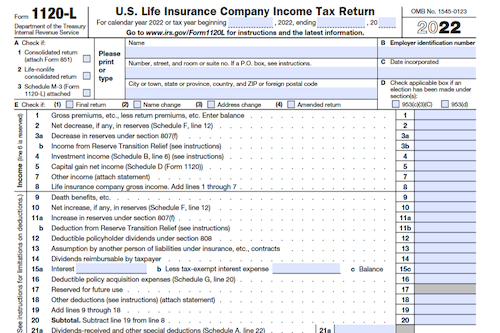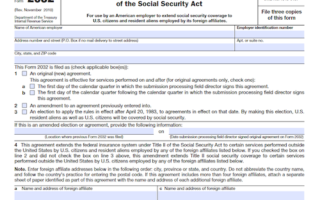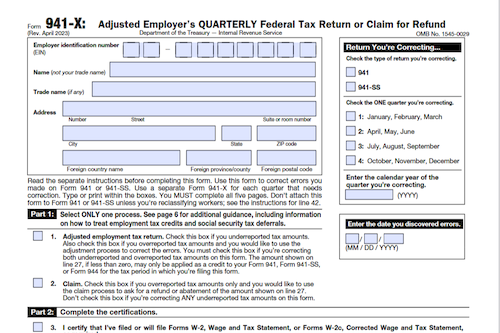Thank you for your question. Form 1099-SA, commonly known as the Distributions from an HSA, Archer MSA, or Medicare Advantage MSA form, is an Internal Revenue Service form that reports distributions made from various health accounts like health savings accounts (HSA), an Archer medical savings account (MSA), or a Medicare Advantage (MA) MSA. It also provides reporting information on the inheritance of accounts by spouses, non-spouses, and estates. Distributions from these type of accounts that are used to pay for qualified medical expenses are generally tax-free and should be reported on either Form 8853 or Form 8889. Amounts from Form 1099-SA that are taxable must be reported on the taxpayer’s federal income tax form and, in some cases, may be subject to a penalty. For more information, please consult the IRS website.
What is Form 1099-SA?
Form 1099-SA: Distributions from an HSA, Archer MSA, or Medicare Advantage MSA is an IRS form that reports distributions made from health accounts like an HSA, Archer MSA, or MA MSA, and provides information on inheritance of these accounts. These forms are sent to account holders and to the IRS, and information from the form may mean the taxpayer owes additional taxes. You can deduct contributions and use the funds tax-free if the distributions are spent on qualifying health expenses. The form contains specific information that needs to be reported, and expert advice may be necessary to ensure all reporting is accurate.
IRS Form 1099-SA – Who Needs to Fill It Out?
Form 1099-SA must be filed by providers of HSAs, MSAs, Archer MSAs, and Medicare Advantage MSAs. These forms are sent to individual account holders, the IRS, and should be received by the end of January each year. When recipients of these accounts file their taxes, they may need to include Form 8853, Form 8889, or Form 1040 on their tax returns in order to properly report their distributions from health savings, medical savings, and Medicare Advantage accounts. The type of form to use depends on the type of account and type of distribution. Additional taxes may apply if you use distributions from these accounts for non-qualifying expenses.
Step-by-Step: Form 1099-SA Instructions For Filling Out the Document
Completing Form 1099-SA is required when a taxpayer is entitled to certain amounts from an HSA, Archer MSA, or Medicare Advantage MSA. This form, which is generated and distributed by the financial institution managing the account, provides information on the distributions made from these accounts and the subsequent taxation of those distributions. It also signals potential penalties for mistaken distributions and excess contributions. One must fill out Form 8853 or Form 8889 in order to report the distributions from these accounts, even if the distribution isn’t taxable. This guide outlines key information about Form 1099-SA and how to read, e-file, and submit the form.
Below, we present a table that will help you understand how to fill out Form 1099-SA.
| Information Required for Form 1099-SA | Details |
|---|---|
| When to Complete | Required when a taxpayer is entitled to certain amounts from an HSA, Archer MSA, or Medicare Advantage MSA. |
| Form Source | Generated and distributed by the financial institution managing the account. |
| Purpose | Provides information on distributions made from these accounts and their taxation, as well as potential penalties for mistaken distributions and excess contributions. |
| Additional Forms | One must fill out Form 8853 or Form 8889 to report distributions from these accounts, even if the distribution isn’t taxable. |
| Guide | Outlines key information about Form 1099-SA and how to read, e-file, and submit the form. |
Do You Need to File Form 1099-SA Each Year?
Yes – Form 1099-SA is filed by providers of HSAs or MSAs and sent to individual taxpayers who receive distributions from health savings, medical savings, and Medicare Advantage accounts. It provides details on distributions made and should be sent by the end of January. If the distribution isn’t used for qualifying medical expenses, it is taxable and may also incur a 6% penalty. In addition, if your spouse has passed away and you have inherited an account, different rules may apply, so make sure to consult a tax expert.
Download the official IRS Form 1099-SA PDF
On the official IRS website, you will find a link to download Form 1099-SA. However, to make it easier for you, we are providing the link in our article, which comes directly from the official irs.gov website! Click to download: Form 1099-SA
Sources:
https://www.irs.gov/forms-pubs/about-form-1099-sa
https://www.irs.gov/instructions/i1099sa




